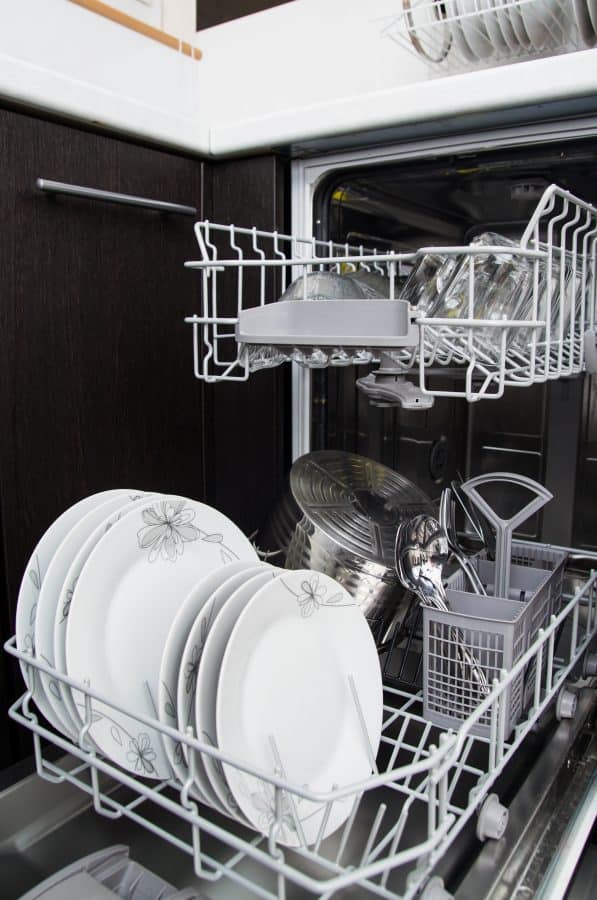How to Use your Home Warranty in the Best Way Possible
This how to use your home warranty in the best way possible post is a sponsored guest post.
Becoming a homeowner is something to be proud of – there is nothing like spending your hard-earned money on a place of your own. But no matter how shiny and new your home is on the day of closing, things can happen. Air conditioning units decide to break down in the sweltering summer months and dishwashers certainly don’t last forever. The costs of home repairs can add up quickly, and that proud moment of becoming a homeowner starts feeling like a distant memory.
There are ways to protect yourself from financial woes, however, and one method is to invest in a home warranty. Deciding if a home warranty policy is for you can become a challenge if you are unfamiliar with the process. Before you sign a contract you’ll have to do your research. Here you can learn about what a home warranty actually is, the benefits and downfalls of having one, and special things to consider before investing in a home warranty plan.
What exactly is a home warranty and how can it benefit you?
A home warranty is a service contract between you – the homeowner – and a warranty company that protects your home’s appliances and systems from normal wear and tear. The homeowner is required to pay a monthly or annual fee in exchange for these services. A typical contract covers for repair or replacement of your central cooling and heating systems, home appliances, plumbing, electrical, and roof leaks.
Once a covered system or appliance breaks down, you call a 24/7 service number and a home professional will be dispatched to your address within (hopefully) 48h to remedy the issue. If he deems the system or device as non-salvageable, you will be paid to get yourself a replacement. A very similar concept to insurances although this warranty is technically not a form of insurance.
The ultimate benefit of having a home warranty is that it helps you manage the costs of unexpected breakdowns and essential repairs within your home. Wear and tear is bound to happen and most home warranty companies are there to help you through it. The average cost of a home warranty is between $350 to $600 per year. A new washer/dryer alone can cost thousands.
Are there any vices related to home warranty companies?
There are certainly some home warranty companies that have a bad reputation. Homeowners might feel that the company is too slow to fix the issue at hand. This can even start becoming a safety concern – nobody wants to wait two weeks for a new heating system during the winter. Some companies may not have enough staff on hand or argue that the problem is not a priority, and some seem to intentionally shrug off their clients
Another potential vice of the home warranty world is confusing or even intentionally misleading terms and conditions within the contract. You might think you’re covered, but a company may try to claim that the terms and conditions state otherwise. You must read carefully before signing any documents – do not just briefly skim through the fine print. For these reasons, it is extremely important to read past reviews of home warranty companies from fellow homeowners. Going with some of the biggest home warranty companies in the industry like Select Home Warranties or with its major competitor Choice doesn’t seem like a bad idea too.
What if the home warranty company fails to honor a contract?
If a warranty company denies a claim and fails to honor your contract it can become extremely frustrating for any homeowner. There are certain procedures to follow to make things right. You have the power to dispute any claim that is denied. This can be a lengthy and difficult process but it might be worth it in the long run. The first step is to approach the Better Business Bureau – most warranty companies will resolve the issue just to avoid complaints from BBB.
If this brings no results the next step would be to file a case in small claims court as long as the claim amount is under $10,000. For larger claims you may have to hire an attorney to fight on your behalf. Keep in mind that legal fees can quickly add up, so decide if it’s worth it before going down this road, but what’s important is that you won’t give up on getting the service you paid for.
What are some more considerations before using your policy?
Just because you have a home warranty policy does not mean you should use if for every repair around your home. Each time a service call is made the company will charge a fee – usually between $60 and $100. This does not mean the problem will be fixed, it is just for sending someone to look at the problem. You can typically find a private repairman for less than that. This just means you need to pick and choose your battles when using your warranty. Decide whether it’s worth it to give the company a call for each home repair.
So should you or should you not have a home warranty?
First you need to consider your home and how you treat it. Is it less than five years old with brand new appliances? Are you as a homeowner gentle on your belongings and cause little wear and tear? Are you OK with the idea of paying out-of-pocket for any fixes around the house? If you answered yes to any of these, a home warranty may not be for you. If your answers were mainly “no”, then you might be a good candidate for a home warranty. Each homeowner’s situation is different, but it is never a bad idea to invest in a warranty policy just in case.
Do you have tips to add for how to use your home warranty in the best way possible?





